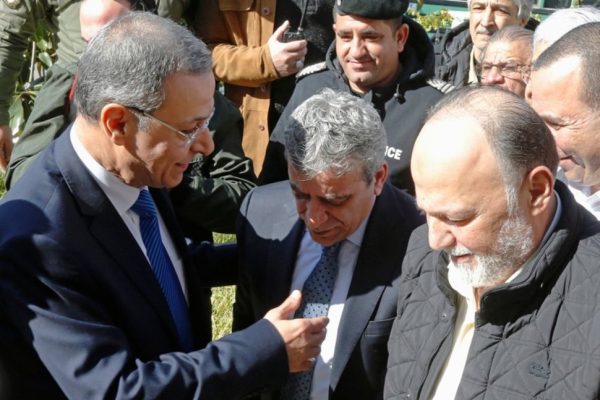
BEIRUT – Officials from Lebanon’s Shi’ite parties Amal and Hezbollah visited a mainly Christian district of Beirut on Friday to help defuse tensions ignited this week by a row involving the country’s president and the parliamentary speaker.
Lebanon’s Foreign Minister Gebran Bassil, the son-in-law of President Michel Aoun, enraged supporters of Shi’ite Parliament Speaker Nabih Berri, when he was heard in a leaked video calling Berri “a thug”. Bassil and Aoun are Maronite Christians.
Demanding an apology, supporters of Berri and his Amal movement staged protests in various parts of the country.
The standoff threatened to inflame sectarian violence and paralyze the government in the run-up to legislative elections in May, the first since 2009 after parliament extended its own term three times.
But Aoun spoke by telephone with Berri on Thursday, and the standoff eased further on Friday with a meeting between the Shi’ite officials and members of Aoun’s Free Patriotic Movement (FPM) in the mainly Christian district of Hadath, on the southern outskirts of Beirut.
“The situation has returned to normal after lessons were learned from recent events,” Aoun said on his official Twitter account on Friday.
Commenting on the talks in Hadath, FPM lawmaker Alain Aoun, a nephew of the president, said: “Our meeting today is a message countering all that happened in recent days. It is also a message to (Speaker Berri) that his dignity and ours are one.”
CALL FOR UNITY
At a joint news conference, lawmakers from Amal, Hezbollah, and the FPM called for national unity and religious tolerance.
Amal distanced itself from the protests of the past few days, which saw some supporters set tyres ablaze, block roads and fire guns into the air, leading to the deployment of troops in Hadath on Wednesday to prevent violence.
“Everybody knows the Amal movement has nothing at all to do with what has happened,” Ali Bazzi, an Amal lawmaker, said.
“And we have the courage the morality… to apologize publicly for any offence that affected the Lebanese on the ground,” he added.
The FPM says Bassil has already expressed regret over his remarks, and that it regards the issue as over. Berri has previously said Bassil should apologize “to the Lebanese people” for his remarks.
Berri has accused Aoun of exceeding his powers at the expense of other sects.
The latest standoff has again exposed the fragility of Lebanon’s faction-based politics.
Lebanon’s system of government aims to maintain a balance between the country’s many religious sects, who fought a 1975-1990 civil war. Berri and Aoun, both now in their 80s, were civil war enemies.
Iran-backed Hezbollah’s links to Berri and Amal run much deeper than its political alliance with the FPM.
(Reuters)

Leave a Reply
You must be logged in to post a comment.